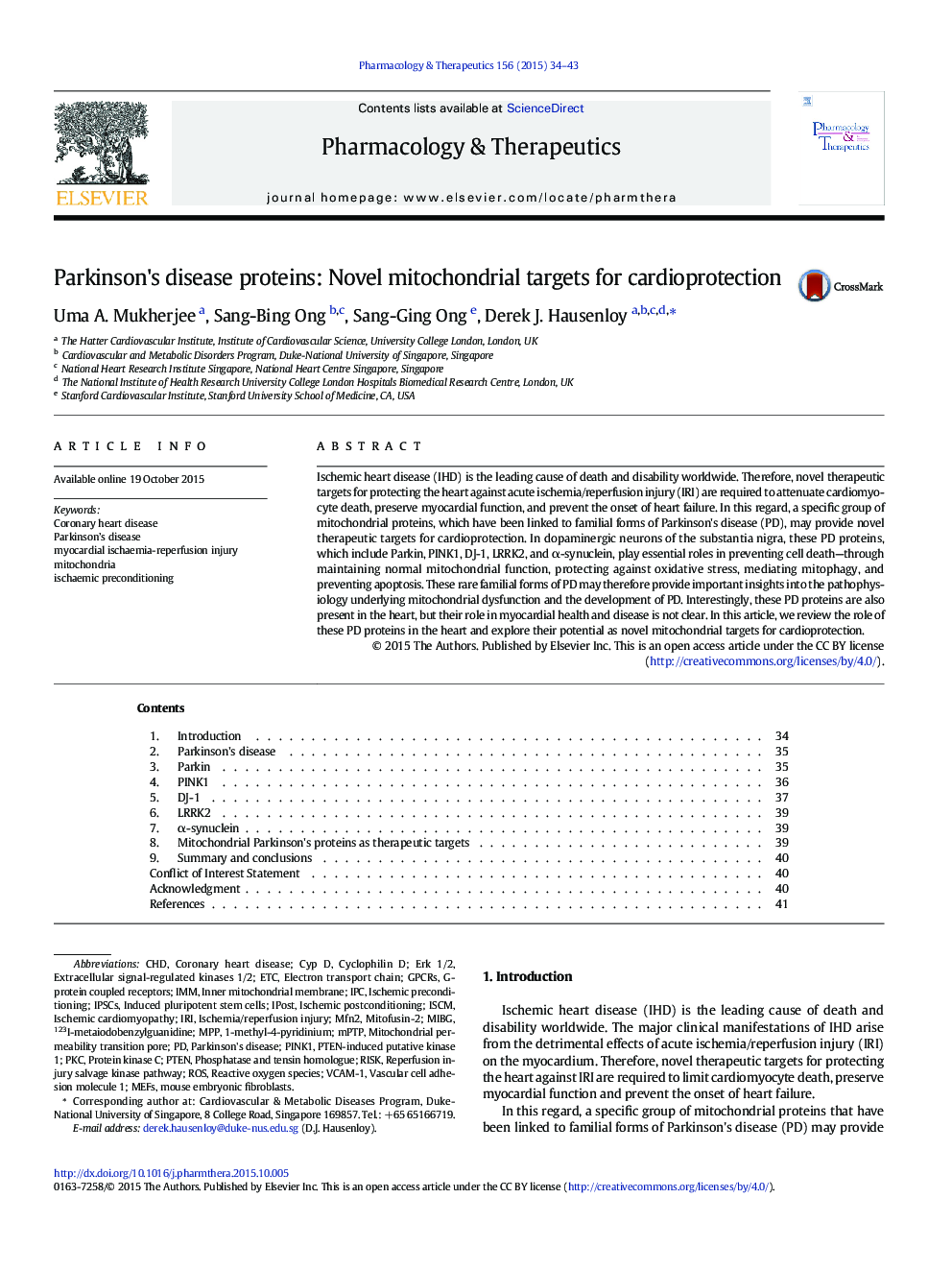| Article ID | Journal | Published Year | Pages | File Type |
|---|---|---|---|---|
| 5843918 | Pharmacology & Therapeutics | 2015 | 10 Pages |
Ischemic heart disease (IHD) is the leading cause of death and disability worldwide. Therefore, novel therapeutic targets for protecting the heart against acute ischemia/reperfusion injury (IRI) are required to attenuate cardiomyocyte death, preserve myocardial function, and prevent the onset of heart failure. In this regard, a specific group of mitochondrial proteins, which have been linked to familial forms of Parkinson's disease (PD), may provide novel therapeutic targets for cardioprotection. In dopaminergic neurons of the substantia nigra, these PD proteins, which include Parkin, PINK1, DJ-1, LRRK2, and α-synuclein, play essential roles in preventing cell death-through maintaining normal mitochondrial function, protecting against oxidative stress, mediating mitophagy, and preventing apoptosis. These rare familial forms of PD may therefore provide important insights into the pathophysiology underlying mitochondrial dysfunction and the development of PD. Interestingly, these PD proteins are also present in the heart, but their role in myocardial health and disease is not clear. In this article, we review the role of these PD proteins in the heart and explore their potential as novel mitochondrial targets for cardioprotection.
